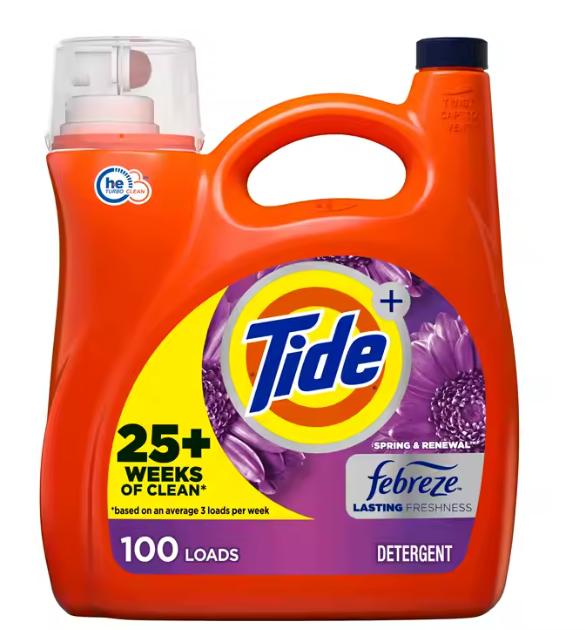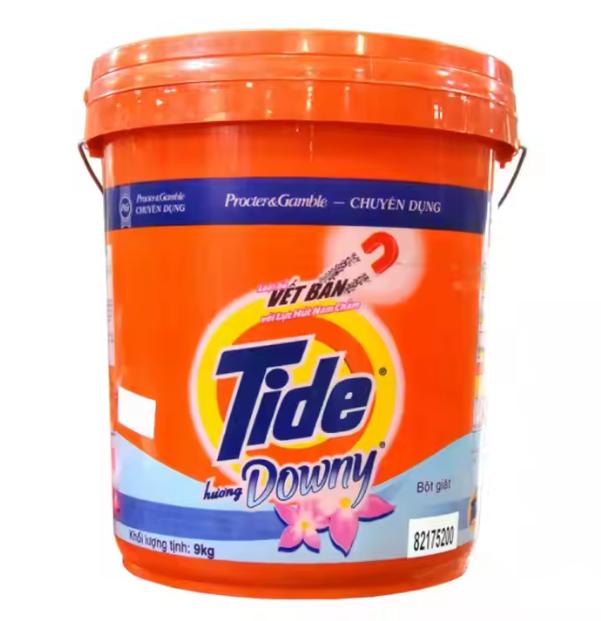Laundry detergent is an essential product for maintaining clean and fresh clothes, particularly in large organizations and facilities with significant laundry needs. From hospitals and hotels to resorts and schools, having a reliable supply of laundry detergent is crucial. When deciding to buy laundry detergent in bulk, choosing between powder and liquid forms can impact cost-efficiency, storage, and overall performance. Here, we’ll delve into the benefits and drawbacks of both options, helping you make an informed decision that best suits your needs.

Powder Laundry Detergent: Benefits and Drawbacks
Advantages of Powder Detergent
One of the main advantages of powder laundry detergent is its cost-effectiveness. Due to its lower manufacturing and transportation costs, powder detergent often comes at a lower price point than liquid detergent. Powder detergent is also highly effective at lifting stains that require deep scrubbing, such as those caused by mud, grass, and clay. Another benefit is its longer shelf life compared to liquid detergent, a result of fewer preservatives needed to maintain its effectiveness. This makes powder detergent an ideal choice for bulk purchasing and long-term storage. Moreover, powder detergents often use less packaging, reducing environmental waste and promoting sustainability.
Disadvantages of Powder Detergent
However, powder detergent does have its drawbacks. It can sometimes leave residues on clothes if not completely dissolved, especially in cold water or low-agitation washing machines. This can lead to the need for additional rinses, thereby increasing water and energy consumption. Additionally, powder detergents are bulky and heavier to transport and store, which can be a limitation if you have limited storage space. They also don’t dissolve as quickly as liquid detergents, which can be problematic in certain washing cycles. Lastly, powder detergents can cause issues with modern high-efficiency (HE) washers that are specifically designed to work with low-sudsing detergents.
Liquid Laundry Detergent: Benefits and Drawbacks
Advantages of Liquid Detergent
Liquid laundry detergent boasts its own set of benefits, particularly in its ease of use and effectiveness. It dissolves quickly, even in cold water, which makes it suitable for quick and efficient cleaning. This also means it minimizes the risk of residues on clothing. Liquid detergents are excellent at treating greasy stains due to their liquid consistency, allowing them to penetrate fabrics more effectively. They are also available in a variety of formulas, including specialized options like non-toxic and hypoallergenic detergents, making them suitable for those with specific skin sensitivities or environmental concerns.
Disadvantages of Liquid Detergent
Despite these advantages, liquid detergents come with higher production costs, often making them more expensive than their powdered counterparts. They also have a shorter shelf life due to the higher water content and the need for preservatives to maintain efficacy. This can be a disadvantage for long-term bulk storage. Moreover, the plastic bottles used for liquid detergents contribute to environmental waste, which isn’t as much of an issue with the cardboard or less plastic packaging used for powder detergents. There is also the potential for leaking and spillage during transportation and storage.
Key Considerations for Bulk Buying Powder vs. Liquid Laundry Detergent
Storage and Packaging
When purchasing laundry detergent in bulk, storage and packaging are critical factors. Powder detergent generally requires dry conditions and significant storage space due to its bulk. On the other hand, liquid detergent, packaged in large jugs or drums, needs secure storage to prevent leaks and spills. Evaluating your storage capabilities can help determine the best option for your needs.
Price Comparison and Cost-Effectiveness
Cost is a significant consideration in bulk purchases. Powder detergent tends to be more cost-effective on a per-load basis and cheaper to transport. However, initial costs and potential additional shipping fees for liquid detergent due to its weight and packaging should also be taken into account.
Stain Removal and Effectiveness
Both types of detergents have specific strengths in stain removal. Powder detergents excel in treating tough stains like mud and clay, while liquid detergents are more effective on grease and oil. Understanding the types of stains you’re likely to encounter can guide you in selecting the best detergent.
Environmental Impact
Environmental considerations are increasingly important for many buyers. Powder detergents often have less impact due to their minimal packaging. On the other hand, liquid detergents, especially those labeled as eco-friendly, are formulated to reduce harm to the environment but involve more plastic use.
Which is Right for Your Business or Household?
Choosing between powder and liquid laundry detergent ultimately depends on your specific needs. For businesses or households with significant space and a focus on cost, powder detergent may be the better option. Conversely, those prioritizing environmental concerns, ease of use, and effective stain treatment might find liquid detergent more suitable. Assessing the key factors like budget, storage, stain types, and environmental impact can help make the best choice.

How to Buy Bulk Powder or Liquid Laundry Detergent
Buying in bulk involves several steps to ensure you get the best product at the best price. First, outline your detergent preferences and required quantities. Research and evaluate suppliers, ensuring they offer high-quality products, reasonable prices, and reliable service. Request samples to test the detergents’ effectiveness. Communication with suppliers is vital to clarify terms, delivery schedules, and payment methods. Finally, review contracts carefully to avoid any misunderstandings.
Conclusion
Both powder and the bulk liquid laundry detergents have their unique advantages and drawbacks. In bulk purchasing, understanding your specific needs and weighing factors such as cost, effectiveness, storage, and environmental impact are crucial. Whether for large organizations or households with substantial laundry needs, making an informed choice will lead to efficient and cost-effective laundry solutions.
